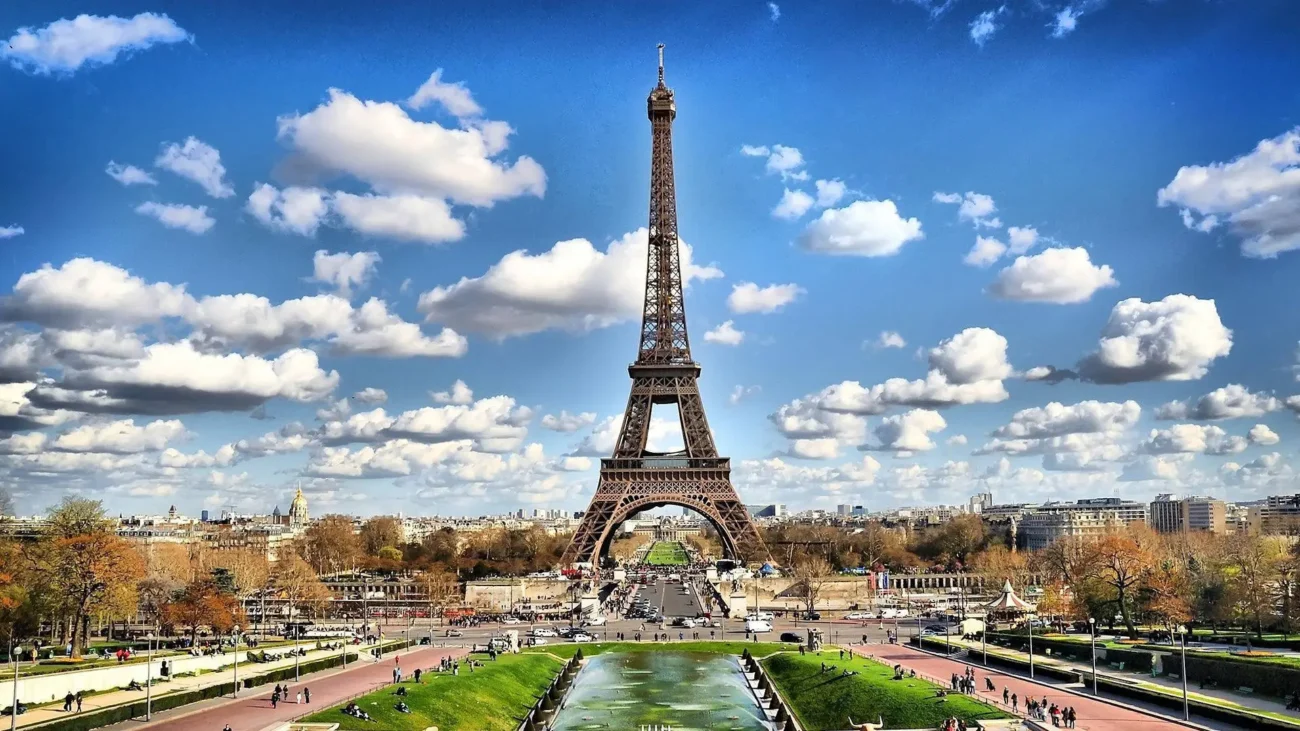France, situated in Western Europe, is a country that has profoundly shaped the world through its history, art, politics, and philosophy. From medieval monarchies to revolutionary ideals and from culinary brilliance to global diplomacy, France’s influence extends far beyond its borders. Known as the “Hexagon” due to its six-sided shape, France presents a compelling blend of ancient traditions and modern innovation, making it one of the most captivating nations on Earth.
Natural Landscape and Geography.
France is geographically diverse, bordered by Belgium, Luxembourg, Germany, Switzerland, Italy, Monaco, Spain, and Andorra. The country is bounded to the north by the English Channel, to the west by the Atlantic Ocean, and the southeast by the Mediterranean Sea. This diverse location gives rise to a variety of landscapes, from the rugged cliffs of Normandy and Brittany to the sunlit beaches of the Côte d’Azur and the snow-capped Alps bordering Switzerland and Italy.
The French countryside is equally mesmerizing, with rolling hills, expansive vineyards, lavender fields, and dense forests. The Loire Valley, Provence, and Dordogne are regions celebrated not just for their natural beauty but also for their rich historical legacy. France’s geography plays a significant role in shaping its regional identities, agricultural output, and cultural expressions.
Background in History.
The history of France is a complicated web of conquest, monarchy, revolution, and republicanism. The area was once inhabited by Celtic tribes known as the Gauls, but the Romans conquered it and made it an important part of the Roman Empire. France became a feudal kingdom after Rome fell, ruled by the Merovingians and Carolingians, with Charlemagne being one of its most famous early rulers. France developed into a powerful monarchy during the medieval period.
Characterized by castles, crusades, and a deeply ingrained Catholic tradition. Key turning points in the history of French sovereignty were the Hundred Years’ War, Joan of Arc’s rise to power, and the kingdom’s eventual consolidation. The intellectual and artistic achievements of the Renaissance laid the groundwork for modern France. The 1789 French Revolution had a significant impact not only on French history but also on worldwide democratic movements.
Culture and Society.
Intellectualism, artistic innovation, and refinement are all hallmarks of French culture. The values of “liberté, égalité, fraternité” (liberty, equality, fraternity) remain the moral backbone of the French Republic. France places a high value on secularism, civic responsibility, and individual rights. Education, public debate, and civic engagement are central to the nation’s democratic identity.
The French language is not only a tool of communication but a symbol of national pride. French literature, from Molière to Voltaire, from Balzac to Camus, has made an indelible mark on world thought. Paris, often called the “City of Light,” has been the nucleus of artistic and intellectual life for centuries, drawing writers, philosophers, and artists from around the globe.
Art, Fashion, and Architecture.
France has made a huge impact on global fashion and art. Claude Monet, Edgar Degas, and Henri Matisse are just a few of the world-famous artists that this nation has produced. The Mona Lisa and Venus de Milo are among the masterpieces that can be found in French museums, particularly the Louvre. Architecture in France reflects its historical and regional diversity.
Modern Parisian structures like the Centre Pompidou and La Défense demonstrate France’s commitment to contemporary design, while the Palace of Versailles is an example of royal opulence. Additionally, haute couture originated in France. Elegance and luxury have always been defined by fashion houses like Chanel, Dior, and Yves Saint Laurent.
Industry and Economy.
France has one of the largest economies in the European Union and the world. It is a highly developed, diverse economy with strengths in aerospace, automotive, pharmaceuticals, luxury goods, and agriculture. It is where multinational corporations like Airbus, L’Oréal, and Renault are headquartered. The French economy is still based on agriculture. Wine, cheese, and grain are major exports from the nation.
The commitment to quality and tradition is protected by systems like AOC (Appellation d’Origine Contrôlée), which ensures the authenticity of regional products. A high standard of living is made possible by the comprehensive healthcare, education, and social security that the French welfare state provides.
International Relations and Politics.
France is a semi-presidential republic that combines aspects of the presidential and parliamentary systems. The President, elected by popular vote, holds significant power, while the Prime Minister and parliament manage daily governance. Voting and public debate actively encourage citizen participation, and political discourse is lively.
France is a founding member of the European Union, NATO, the United Nations, and many other international organizations. It maintains a permanent seat on the UN Security Council and has strong diplomatic ties across Africa. The Middle East, and Southeast Asia, owing in part to its colonial history.
Conclusion.
France is a country of immense depth, where the past and present coexist in a uniquely harmonious way. It has made lasting and significant contributions to human rights, philosophy, art, and science. Whether one is drawn to its cuisine, architecture, literature, or landscapes. France offers a richness of experience that is as intellectual as it is sensory. It is more than just a country; it is also a civilization. A way of life, and a constant inspiration for the rest of the world.
